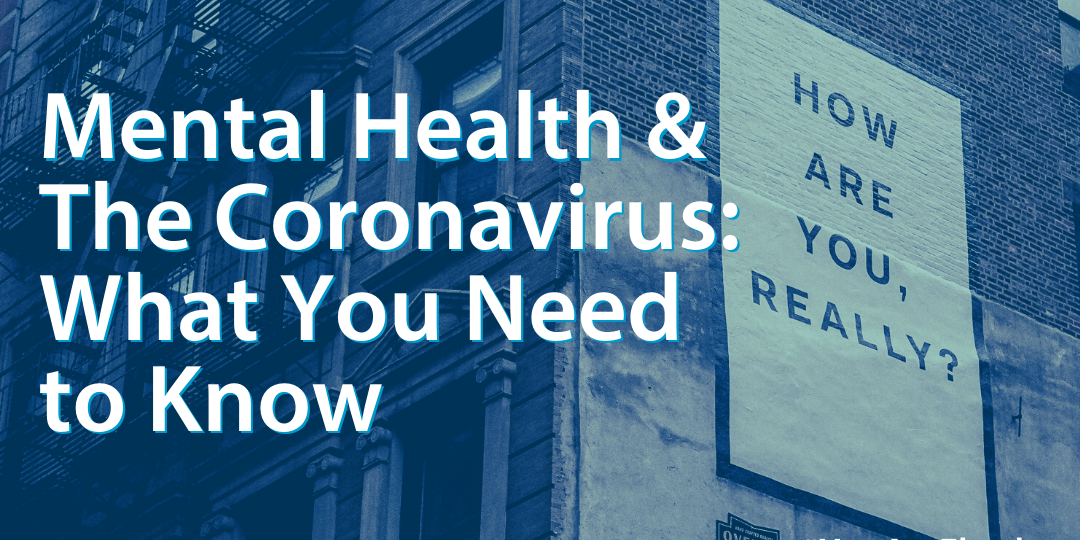Our community of organizations is advocating and prioritizing mental health during this important time, and we were very proud to be a signatory on this letter to Vice President Pence from The Kennedy Forum calling for the government to fully address the mental health implications of the unfolding Coronavirus public health crisis.
While it is very important to follow prevention measures to protect yourself physically, we have compiled resources to help you care for the mental health of you and those around you during this stressful time.
Talking to Kids About the Coronavirus – Child Mind Institute
News of the coronavirus COVID-19 is everywhere, from the front page of all the papers to the playground at school. Many parents are wondering how to bring up the epidemic in a way that will be reassuring and not make kids more worried than they already may be. Here is some advice from the experts at the Child Mind Institute.
- Don’t be afraid to discuss the coronavirus.
- Be developmentally appropriate.
- Take your cues from your child.
- Deal with your own anxiety.
- Be reassuring.
- Focus on what you’re doing to stay safe.
- Stick to routine.
- Keep talking.
What To Do If You’re Anxious About Coronavirus – Huffington Post
“When the news covers the outbreak of a virus, it is common for people who consume a lot of news media to feel a rise in anxiety,” Nicole Bentley, a licensed therapist and intake coordinator at Cityscape Counseling in Chicago, told HuffPost. “Symptoms could include rumination about the virus, fear of catching the virus even if it isn’t in their area, difficulty sleeping and increased efforts to stay healthy.”
For some, anxiety about coronavirus may affect their ability to function at work or otherwise go about their lives. If you’re feeling this way, know that there are things you can do to deal with it.
- Take a break from the news.
- Talk to someone.
- Try to be present in the moment.
- Remind yourself what you can control.
- Practice gratitude.
- Reach out for help.
It Is Imperative To Act Swiftly To Mitigate The Effects Of COVID-19 On Mental Health – Mental Health America
By Paul Gionfriddo, President and CEO, Mental Health America
Throughout the world, people are worrying about the coronavirus and COVID-19, the disease it causes.
Flight reservations are being cancelled. Travelers are coming home. And nearly two dozen IT conferences alone have been cancelled or postponed.
The threat from COVID-19 isn’t insignificant. Most cases seem mild, but at present slightly more than 3 percent of the people who have contracted it have died from it. That makes it significantly more deadly than the flu, although far less widespread.
Congress is taking this seriously. It has appropriated $8 billion to respond.
But the virus isn’t only taking a toll on the nation’s physical health. It is taking a toll on our mental health. And it would be a mistake to think that the clinical anxiety that may be resulting from worries about the virus is insignificant and not worth our attention.
How to Cope With Anxiety About Coronavirus (COVID-19) – VeryWell
It’s terrifying to learn that an illness such as coronavirus (COVID-19) is spreading across the globe. The early stages can be especially anxiety-provoking. During this time, you don’t know how widespread or deadly the illness is going to end up being.
Feelings of fear, anxiety, sadness, and uncertainty are normal during these times. Fortunately, being proactive about your mental health can help to keep both your mind and body stronger.
Ways to take care of yourself include:
- Reading the news from reliable sources (and take breaks from the news)
- Recognizing the things you can control, like having good hygiene
- Taking measures only if recommended by the CDC
- Practicing self-care
- Seeking professional help from a licensed mental health professional if necessary
The Coronavirus Is Spreading. Time to Expand the Conversation About Prevention. – Thrive Global
These are, of course, all important steps. But we need to expand the conversation to make room for a crucial aspect of health that has received very little attention: one of the best things we can do toprotect ourselves is to proactively strengthen our immune system.
This is beautifully captured in The Lucky Years, by Dr. David Agus (who is also on Thrive’s board of directors): “If you throw a lit match into a dewy wet forest, what happens? Nothing. But toss that same incendiary device into a parched landscape that hasn’t seen rain in a long time, and you’ll soon have a quickly moving fire on your hands. The difference between these two environments — one damp and saturated and another dry and thirsty — means everything in terms of how they respond to that spark.”
Dr. Agus’s metaphor is an eloquent way of saying: the strength of our immune system matters greatly in our fight against disease. The inner environment we cultivate can truly make a difference.








Your articles look great !!! http://prime-ken.eek.jp/userinfo.php?uid=441440